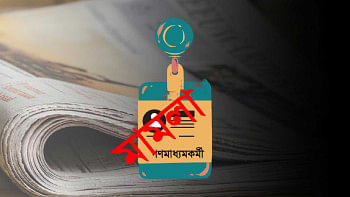Marginalised groups, NGOs should merge rights efforts
A national platform should be created with representatives from all marginalised communities and NGOs working for the former's land, health and education rights so that it can give voice to these ethnically and geographically diverse groups, a seminar was told yesterday.
Marginalised communities of the country are not visible in policy and statistics, said former caretaker government adviser Hossain Zillur Rahman.
He said these groups, accustomed to customary land ownership, were small, and occupations of many such as the river gypsies were disappearing.
The economist said the problems of each community would not receive much attention individually but when brought under a platform, each of their voice would be stronger.
The seminar and information fair on "Land Deprivation of the Tea Communities and Adivasis of the Plains" was organised by the Society for Environment and Human Development (SEHD), at Catholic Bishop's Conference of Bangladesh (CBCB) at the capital's Farmagate.
In the introductory speech, SEHD Director Philip Gain shed light on the plights of tea plantation workers, indigenous communities of Madhupur Forest, land grabbing of indigenous communities in the country's north, and eviction of seven Mahle families in Rajshahi.
He said an estimated five lakh tea workers were brought by the British to Bangladesh 150 years ago from different parts of India to work in the plantations.
"Almost 99.9 percent of these people don't have land, and they can never own land because of the practice inside the gardens," he said.
The country has 160 tea estates in 1.13 lakh hectares of land, all owned by the government and leased out to garden owners, he said. Gain said that within these gardens there were khet lands (croplands), which tea workers use for production of food grains to supplement their meagre cash pay of Tk 69 per day.
"However, the government is now trying to build a special economic zone on these croplands," said Swapon Saotal, who came from Chandpore Tea Estate in Habiganj. "When we protested, the deputy commissioner said we didn't belong to this country! Why did they give us voter ID cards then?" he asked.
"They have been living and using this land for 150 years so this gives them customary right over the land," said Shamsul Huda, executive director of the Association for Land Reform and Development, adding that customary land rights were recognised internationally. He said policymakers were not concerned about the fate of marginalised communities such as tea workers because they did not have importance as voters, due to their small numbers.
Indigenous women's leader Bichitra Tirki, who was tortured by land grabbers in August 2014 to evict her from her own land, talked about the routine harassment she faces while fighting the legal battle and struggling against muscle power to retain her land.
Indigenous leaders and victims of eviction spoke of the torture they face regularly from different quarters including government bodies to force them out of their land.
"The present government has become desperate to achieve economic growth at any cost. They are implementing development projects without leaving space for anyone and thus pushing the already marginalised people into further marginalisation," said Jahangirnagar University's Prof Anu Muhammad.

 For all latest news, follow The Daily Star's Google News channel.
For all latest news, follow The Daily Star's Google News channel. 



Comments